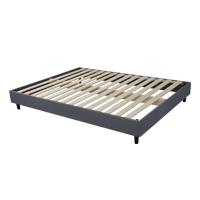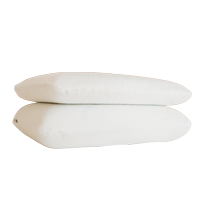Can't Sleep, Mattress
Can digestion affect sleep?
How to improve digestion while sleeping
Snacking and sleeping are some of our favourite pastimes and many of us are as picky with our mattress as we are with our Netflix menu. But for the other type of comfort and late-night eating generally — the question is often asked — is eating close to bedtime a good idea and does it help or hinder sleep?
Disclaimer: For advice on digestion and sleep, consult your doctor about the safest and healthiest measures that suit your particular goals.
We all crave comfort at its core. At Sleep Republic, we can help you get there with the perfect hybrid mattress for you. Buy now and test your mattress for 100 days, completely risk-free.
Timing your last meal

Go to bed hungry, and you’ll likely have trouble falling asleep. Eat a large meal, and afterwards, you may feel like dozing off. It seems like food may be the key to a big snoozefest. So why does eating just before bed get such a bad wrap?
According to the Mayo Clinic, there is some evidence that eating late in the day actually makes it harder to sleep. It’s worth honing in on your digestive clock and understanding how digestion works. The digestive system is our bodily system that breaks down food after we eat.
The time it takes varies from person to person but is approximately 3 hours for the stomach to break down food and pass the partially digested results to the lower intestine. For this reason, you’ve probably heard the old adage, limit how much you eat in the evening, and avoid eating 3 hours before bedtime.
Hence why a big meal at a late-night soiree or gorging on a bunch of snacks just before hitting the sheets may make it harder to fall asleep. Some simply feel uncomfortable. If this is not an issue for you, then you are lucky. But for others, you may wish to avoid large meals late in the day, or pre-slumber.
Diet and sleep
If you’re thinking about the ‘when’, it’s worth considering the ‘what’ as well. Certain foods may either stop you from falling asleep or interrupt your sleep. Digestion also depends on the amount of food you’ve eaten, so a large meal may take longer.
The following tips by Harvard sleep expert, Dr Epstein may help you decide whether what you are about to ingest could impact your sleep:
- Caffeinated food and drinks may make it hard to fall asleep and cause sleep to be fragmented if consumed too close to bedtime. This depends on the individual, but caffeine may stay in your system for up to 7 hours.
- Alcohol often has a big impact — you may fall asleep quickly, but once it’s worn off it can lead to fewer restful stages of sleep.
- Spicy foods (and some medications) for some people may cause heartburn, or stimulate chronic heartburn known as gastroesophageal reflux disease (GERD) — consult your GP if this is an issue.
- Foods with lactose may cause issues for people who are lactose intolerant and don’t have the enzyme to breakdown the main sugar in milk.
An accredited nutritionist, dietitian or your local GP can offer guidance on your diet that is specific to your body, any intolerances or sensitivities and individual health requirements.
Keeping a healthy digestion system

If you are conscious of maintaining a healthy digestive system, other factors include:
- Drink water! Water is essential for good health and helps break down food so your body can absorb nutrients
- Keep a balanced diet and be sure to pack your fridge with plenty of fruits, vegetables and whole grains
- Maintain a healthy weight
- Include physical activity in your daily routine
Our digestive system evolves as we age, so developing healthy and sustainable habits early on, will hopefully put you in good stead for your later years.
Tips to manage a late-night appetite
Below are some tips if you do have an appetite just before you hit the sack:
- Keep late-night munchies to a minimum
- Opt for a low-calorie option like certain fruits
- Try to avoid chocolate if it contains caffeine
- Try to avoid fatty foods or acidic foods just before bed
If late-night hunger pangs are a regular occurrence it might be worth a consult with an accredited nutritionist or dietitian to discuss whether there are alternate options for more satiating meals throughout the day that might minimise late night urges.
Once your digestive comfort is in check, overhaul your mattress comfort and consider an upgrade to your sleeping quarters with Sleep Republic’s cornerstone hybrid-mattress. Our friendly team are always happy to answer any questions on why our high mattress is the ultimate choice for a perfect night’s sleep.












